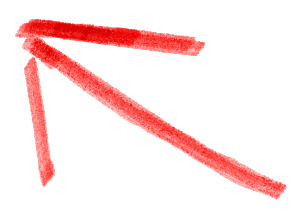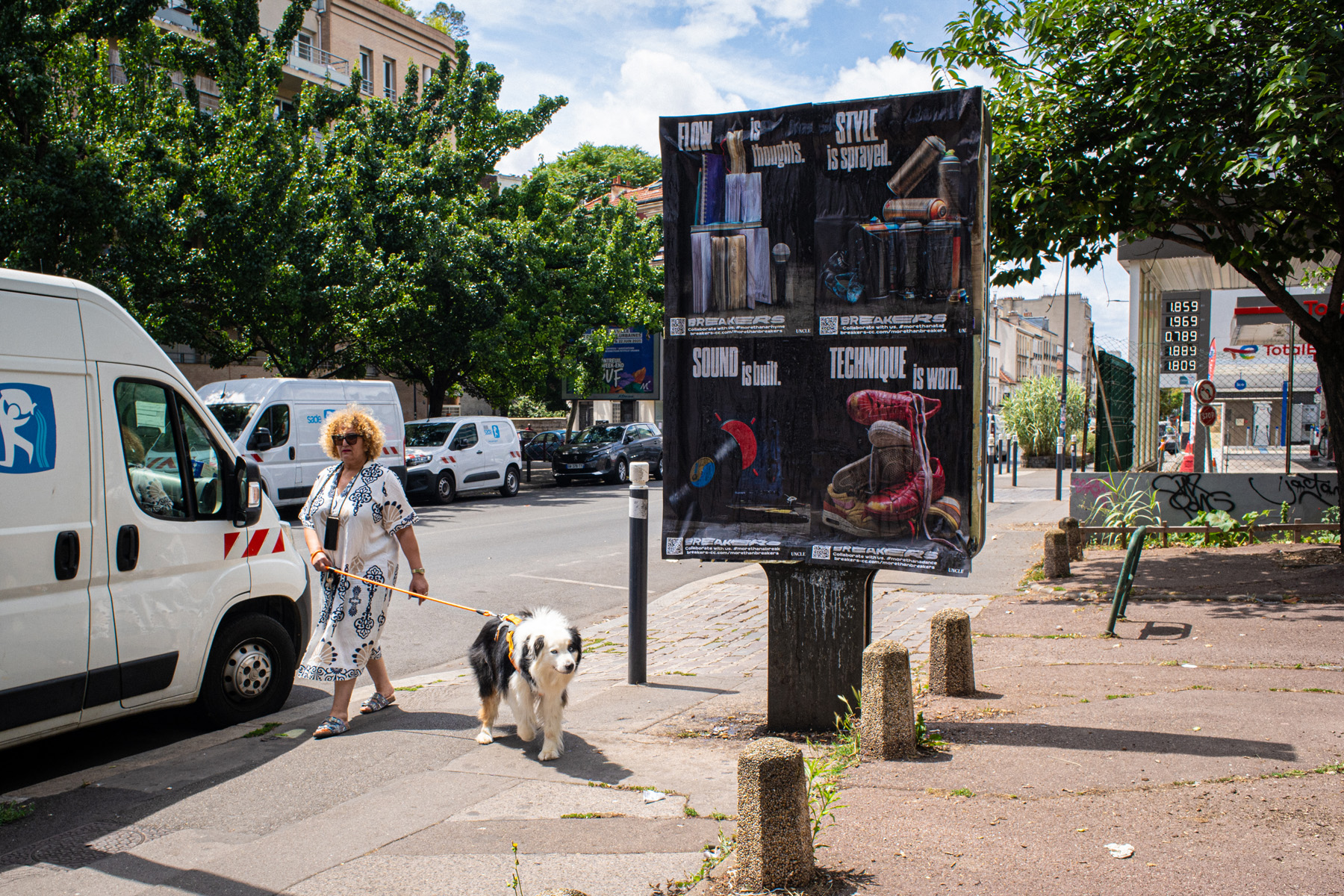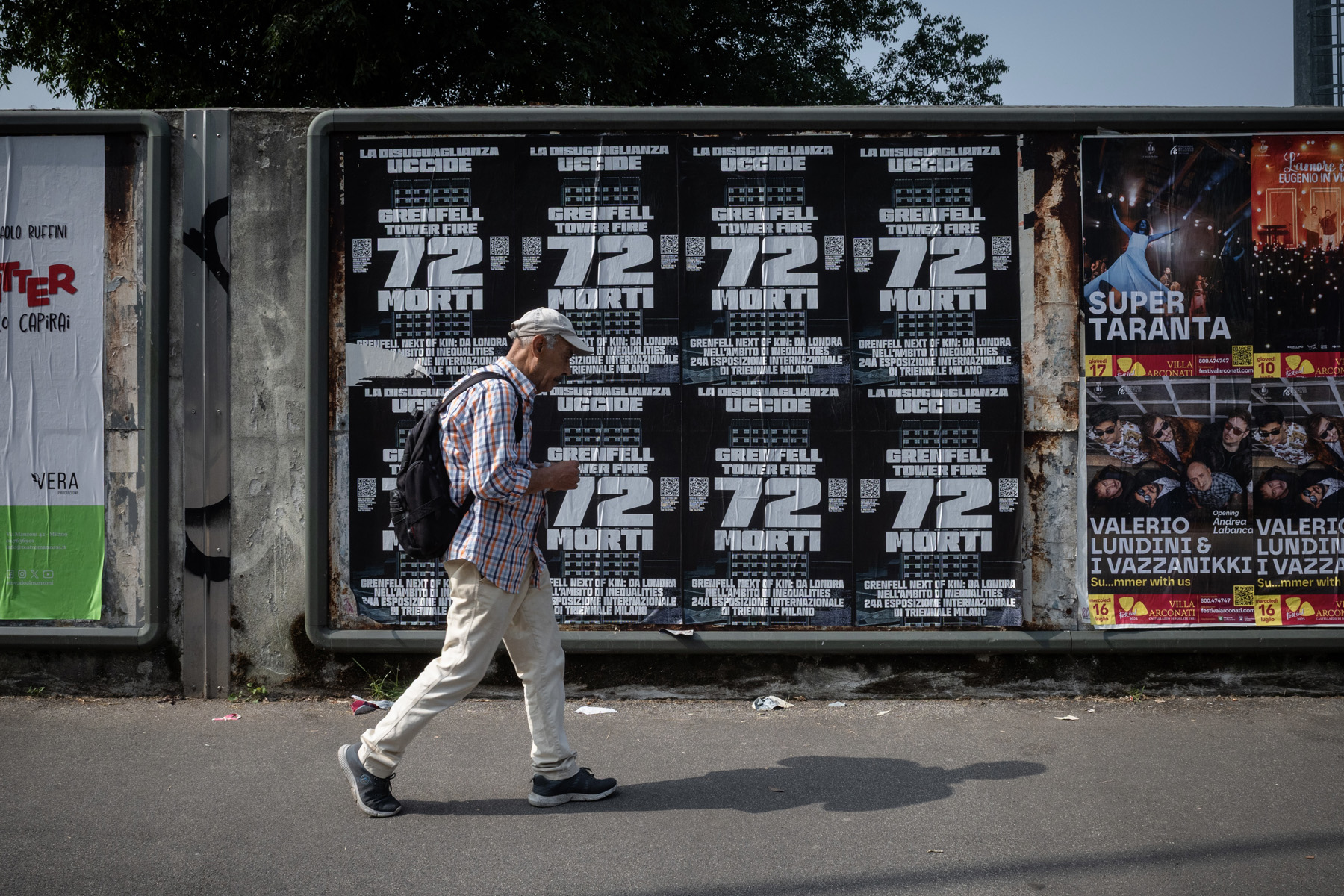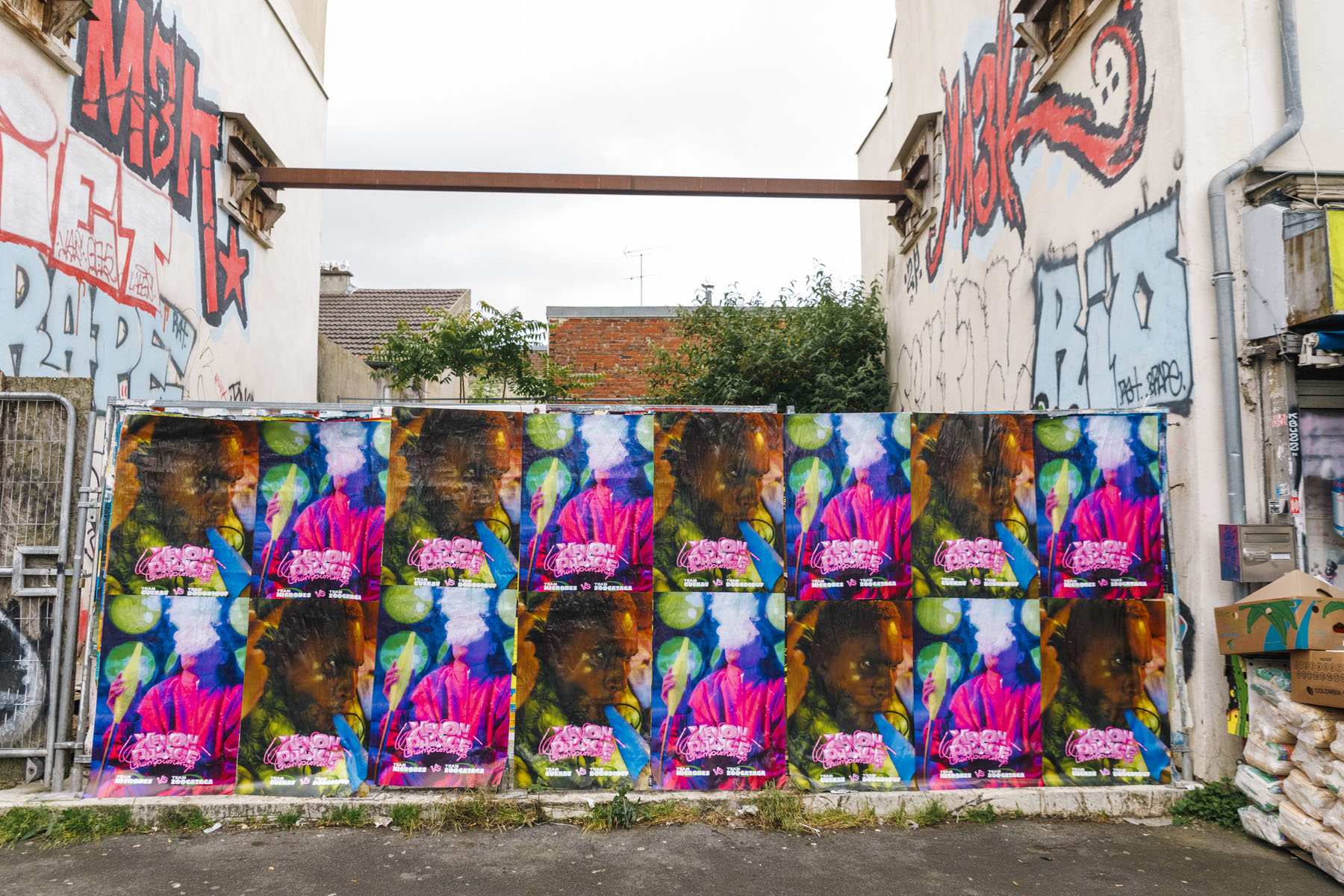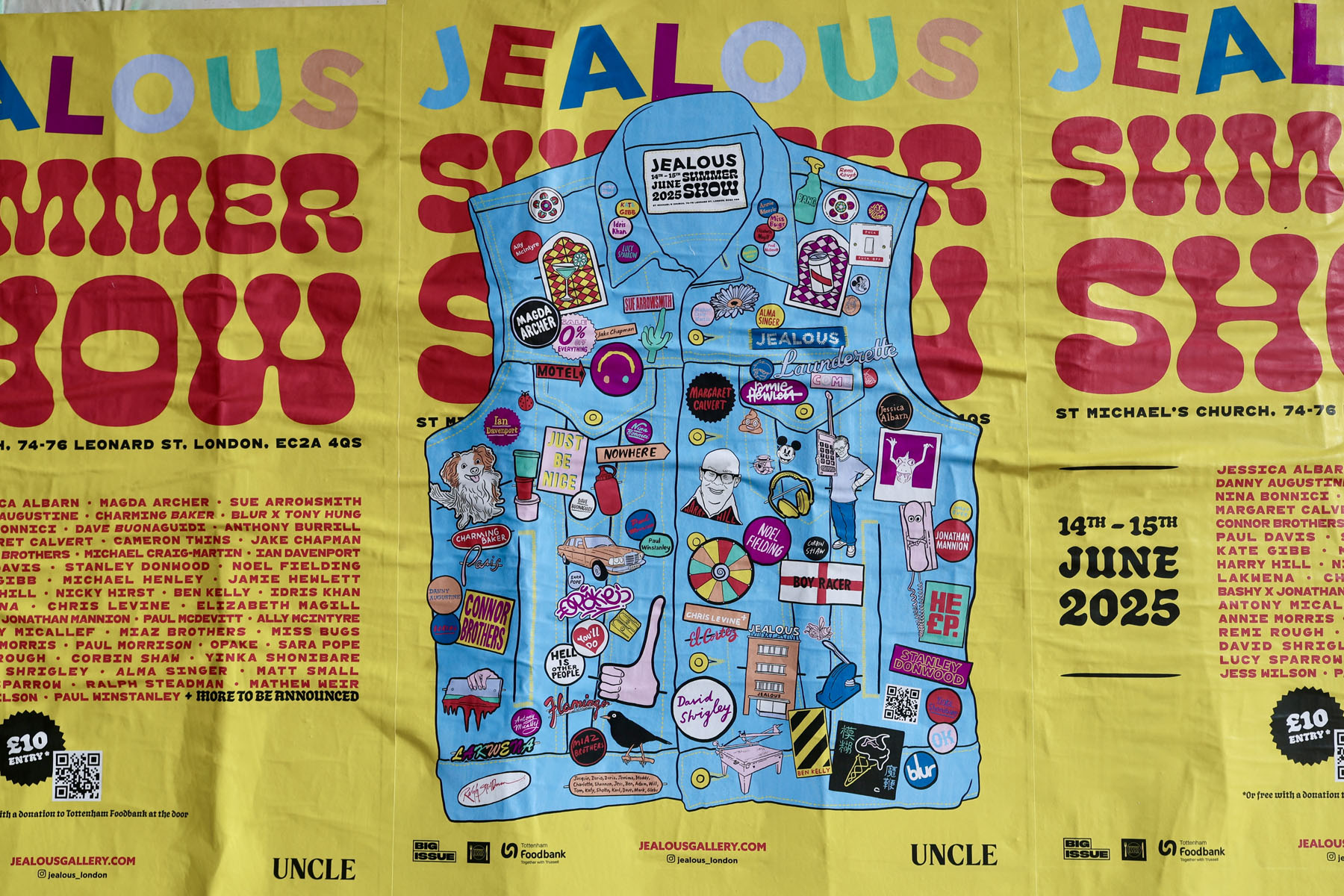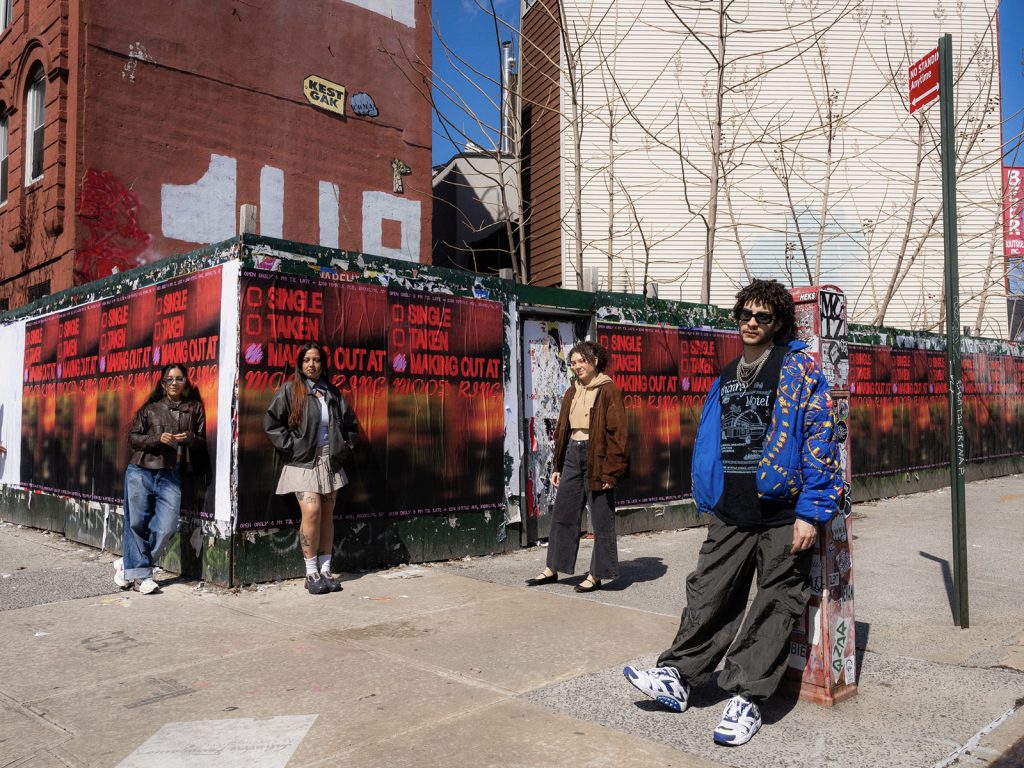
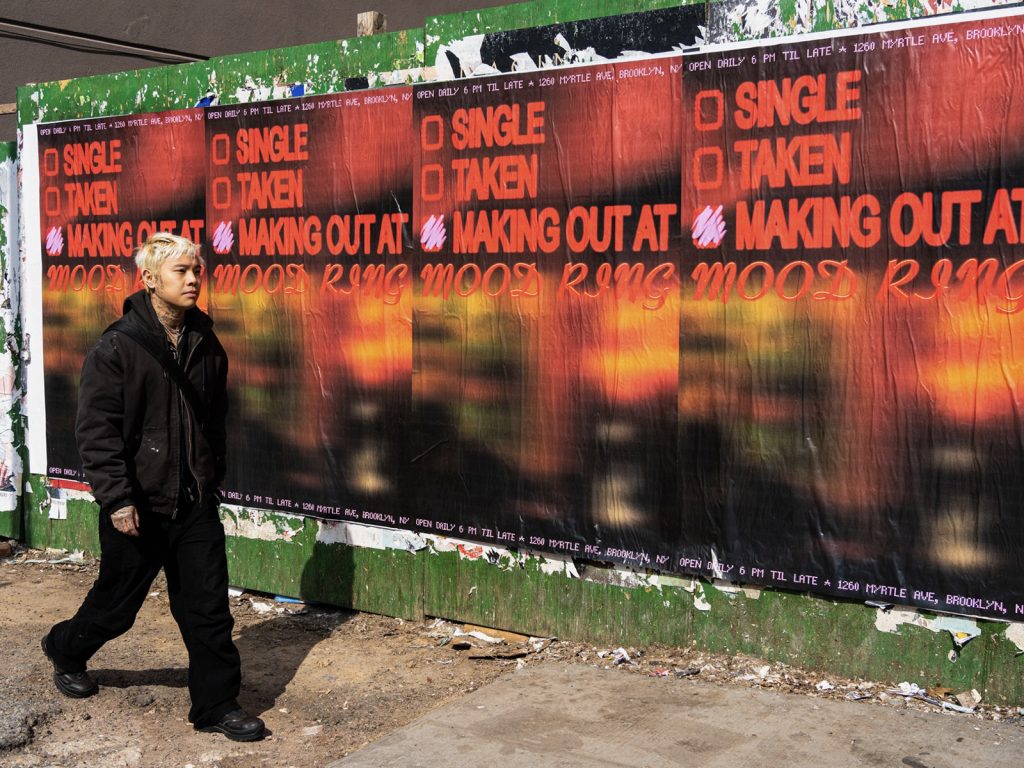
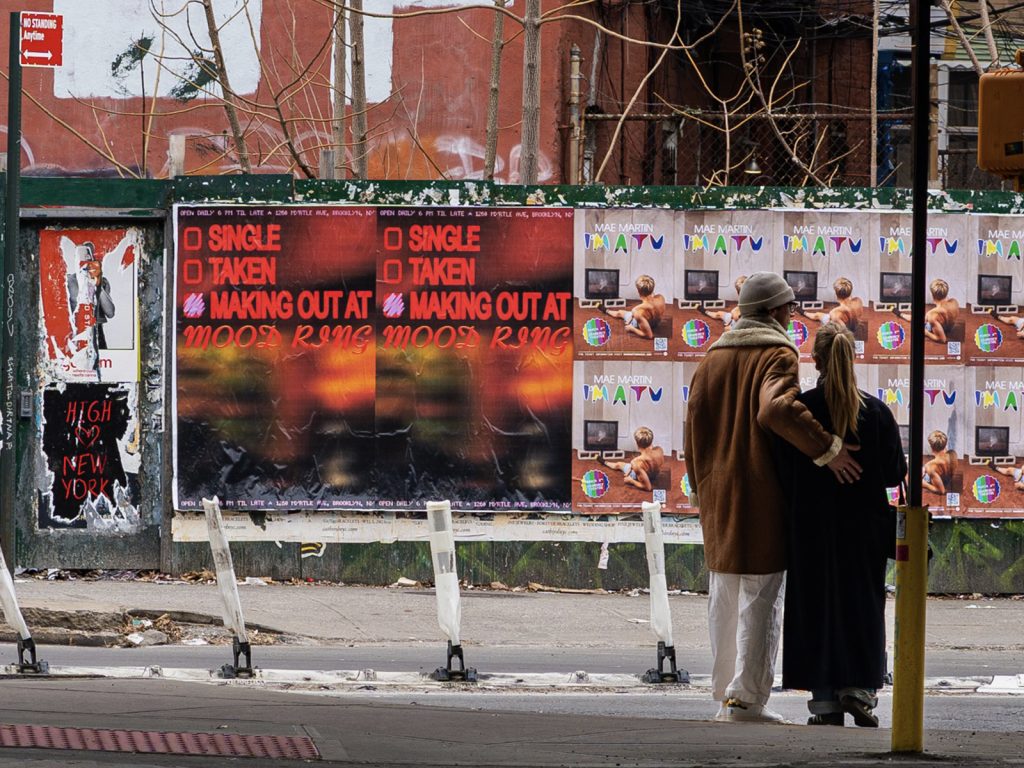
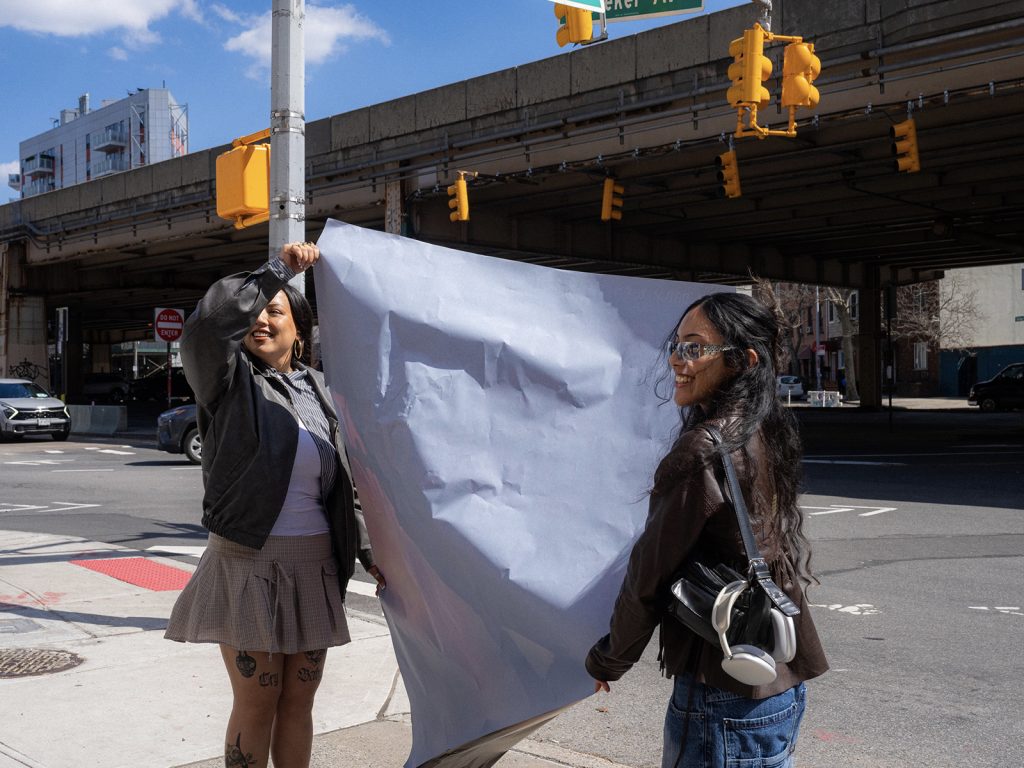
How Bushwick’s Zodiac-Themed Bar Embodies New York Nightlife
Moodring – a ten-minute walk from the centre of the Bushwick universe, Myrtle Ave and Broadway – is one such place. Open since 2017, it’s carved out its own space in New York’s nightlife, balancing the intimacy of a neighbourhood bar with the energy of a club that feeds the underground.
The zodiac-themed cocktails are the initial hook. “Virgo seeks discounted drinks from August 22nd to September 23rd.” But astrology alone doesn’t keep people coming back. What does is a space that constantly shifts with the city – a venue shaped by the people who run it, rather than a corporate identity rubber-stamped across multiple locations.
That flexibility allows it to be reactive in ways larger venues can’t. Its recent Valentine’s event, for example, a staple in their calendar as the bar’s theme and recent wildposting campaign with UNCLE would suggest – raised funds for those affected by the LA fires. They don’t have to wait for approval from a boardroom to make things happen. They’re defined by the people who fill them, from the DJs on the decks to the regulars perched at the bar, and the connection they foster extends far beyond a transaction.
There’s also the bigger picture – the role that a venue like this plays in a city’s ecosystem. “If the only places to play are massive clubs with big fees and bigger expectations, you’re skipping a whole part of the process,” says co-founder Bowen Goh. Moodring, like other small venues, is where artists cut their teeth, where new sounds emerge, and where a DJ can experiment with an audience that’s open to the unexpected. Without places like this, the grassroots pipeline collapses.
And yet, in a city where rising rents and shifting trends force independent venues to fight for survival, Moodring keeps evolving. Like its ever-changing cocktail menu, the space adapts to the season, the moment, and the people who walk through its doors. Call it fate, call it intuition – whatever it is, it’s working.
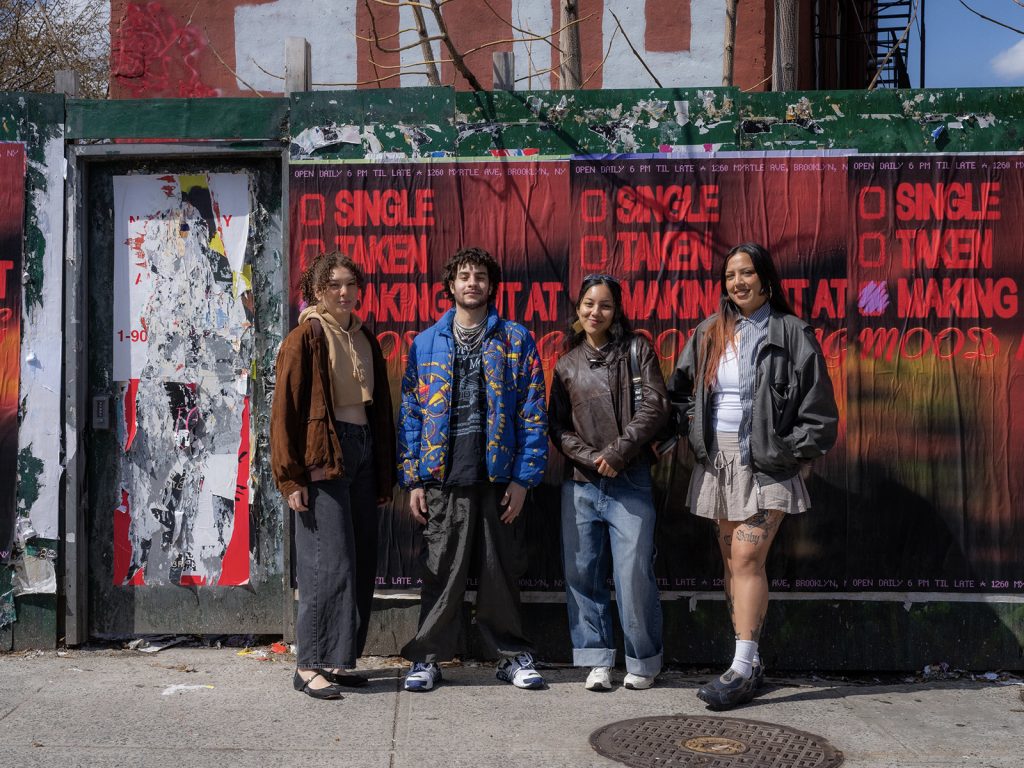
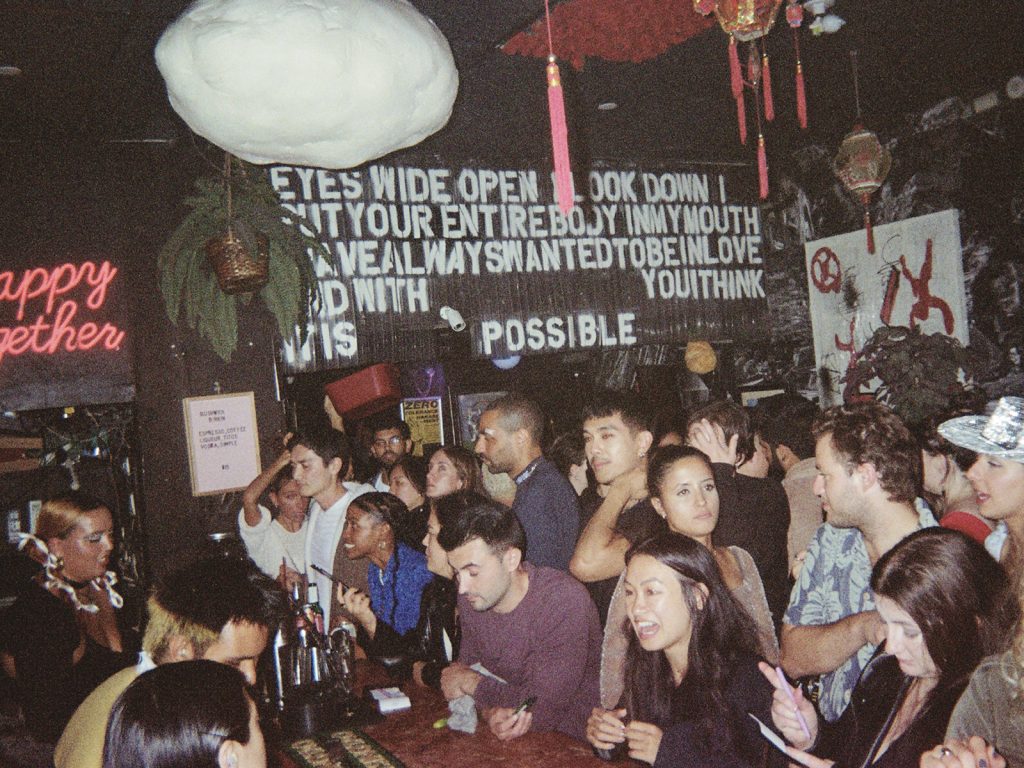
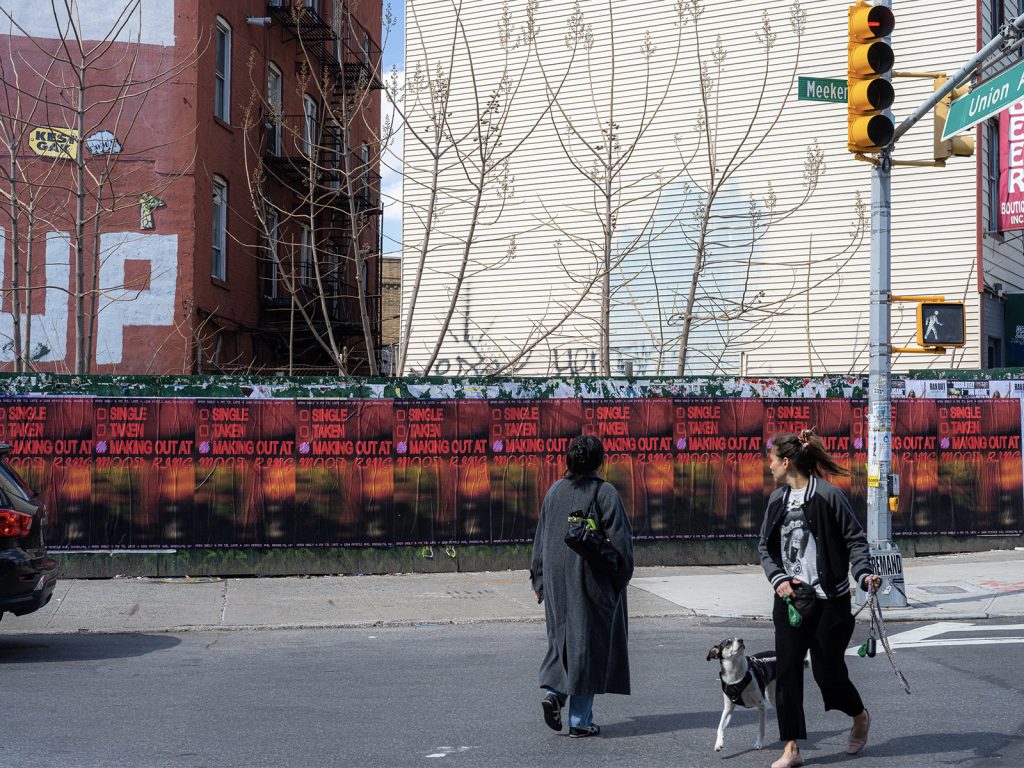
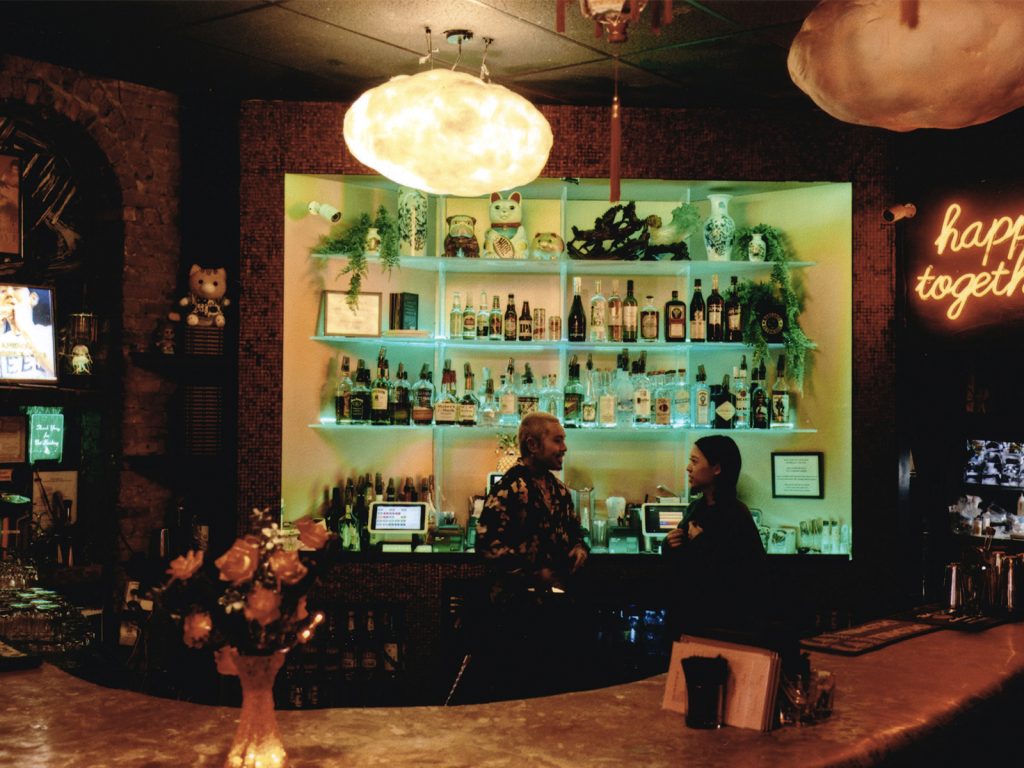
Bowen Goh: I’m one of the founders of Moodring. We opened in 2017, and over the years, we’ve evolved into a bar and club that’s home to a lot of New York’s underground and up-and-coming artists. We started out with more of a house music focus, but as the scene has grown, so has our programming. We try to be a dynamic space—always shifting with what the city and its people want.
What was the original vision for the space, and how has it evolved?
We actually didn’t set out to open a club. The initial idea was a small restaurant, but my business partner was really involved in the underground techno scene. We took a trip to Berlin, and after a few nights out there, the idea of opening a club just felt right. Back home, there was a gap in Bushwick for something on the lighter side of the dance spectrum—not full-on heavy techno, but something with a bit more house music. We saw that opportunity and ran with it.
At first, we didn’t even plan to throw as many events as we do now, but the demand was immediate. We got a little press early on because of our astrology concept, and from there, things snowballed. The DJs came, the crowds followed, and we kept making improvements—better sound, a proper booth, more intentional bookings. Moodring just grew into itself.
Moodring has a strong astrology theme. What inspired that?
Astrology was just something that felt natural to us. Before we even opened, we saw how much people loved talking about it—especially in nightlife, where you’re constantly meeting new people. Asking someone their sign is an easy icebreaker, and we wanted the space to feel like that—somewhere you can strike up a conversation with a stranger without it feeling weird.
It also gave us a way to keep things fresh. We have a rotating cocktail menu based on the zodiac calendar, and over the years, we’ve constantly updated the space’s look and feel. We even put out an astrology-themed cocktail book, which was a fun way to extend the concept beyond the bar.
And how does the astrology theme influence the overall atmosphere at moodring?
The theme was never just a gimmick—it became part of the culture of the place. You’ll see people asking each other about their signs within minutes of meeting. It’s funny because, even if you don’t care about astrology, someone in the room will. It creates this shared language that people can tap into, whether they take it seriously or just use it as a fun way to connect.
Beyond the cocktails, we’ve always treated Moodring as a space that shifts and evolves—kind of like how people see astrology as being tied to cycles and change. We update the decor, switch things up seasonally, and try to keep the energy feeling fresh. I think that’s why people keep coming back—there’s always something a little different, even if it’s subtle.
Moodring has become a hub for djs and electronic music. What’s your approach to programming and curating events?
Bowen Goh: From the start, we wanted to offer something different from what was already out there. Right across the street, you’ve got Bossa Nova Civic Club, which has been a staple for heavier techno. So, when we were setting up Moodring, we leaned toward the other end of the spectrum—more house, something a little lighter, more groove-driven. At the time, there wasn’t much of that in Bushwick, and it just made sense to carve out that space.
Over time, we’ve expanded to include club music, Latin nights, and other genres that reflect what people in the city are gravitating toward. But we always keep the core of it intact—it’s about energy, movement, and making sure the space stays fresh.
Moodring feels like an incubator for up-and-coming artists. Do you see it as a stepping stone for djs on their way to bigger venues?
Yeah, that’s something that’s just naturally happened. We’re a small venue, so we’ve always attracted underground talent—DJs who are on the come-up, trying things out, and building their following. Some of the artists who’ve played here have gone on to much bigger stages, but a space like ours is where they get that first real connection to a crowd.
I think a lot of people don’t realize how important that is. If the only places to play are massive clubs with big fees and bigger expectations, you’re skipping a whole part of the process. Small venues like Moodring are where DJs test out new sounds, build a vibe, and figure out who their audience is. We’ve had plenty of nights where you just know someone’s about to blow up. It’s a good feeling, seeing that progression and knowing we’re part of that pipeline.
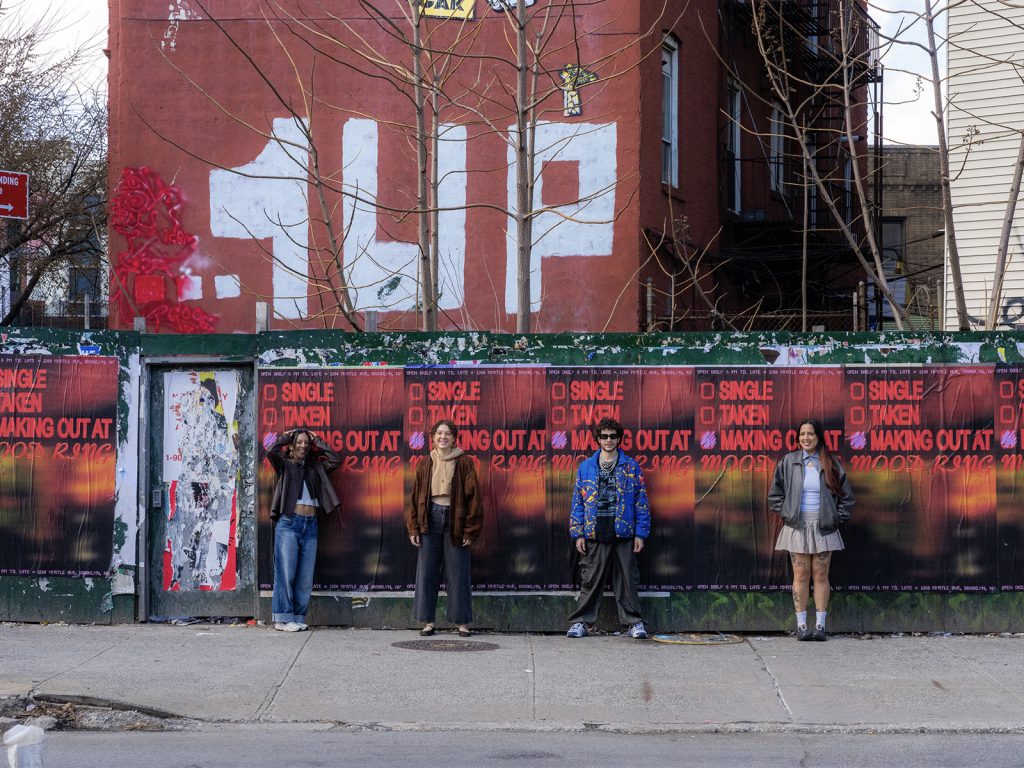
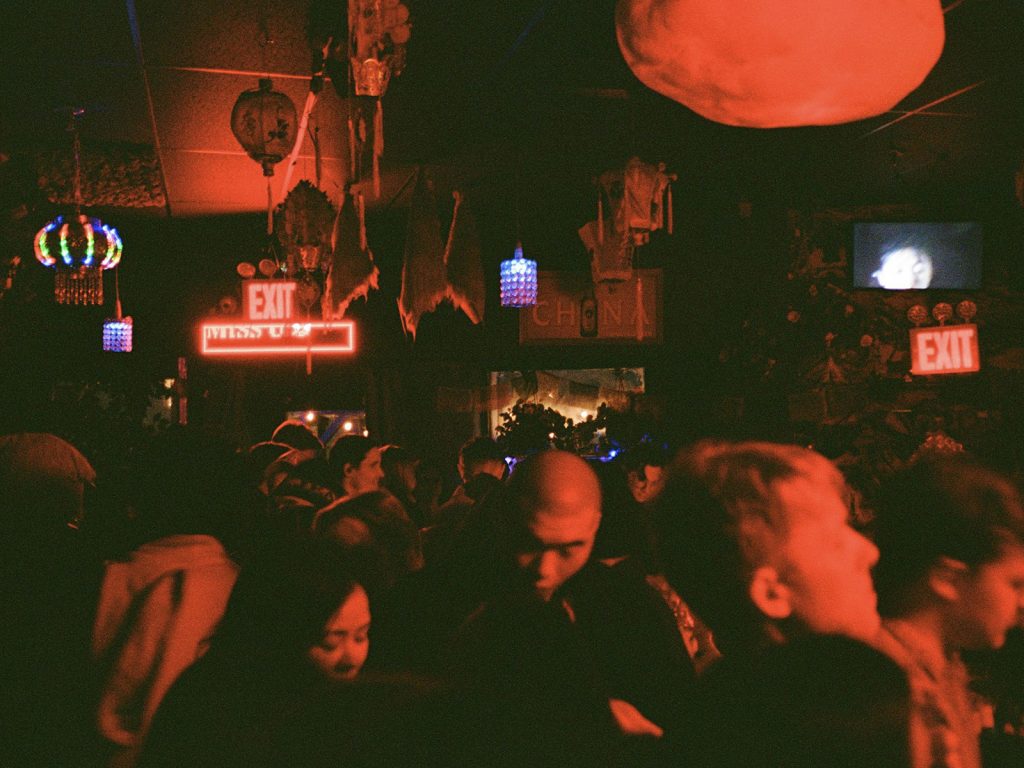
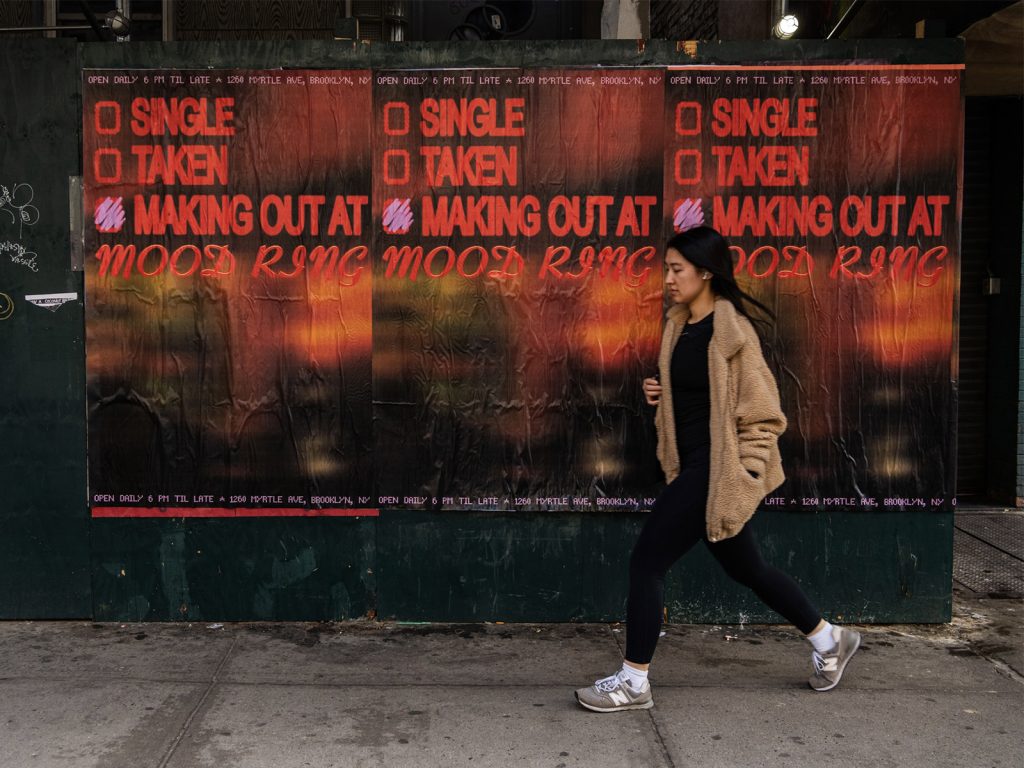

We try to keep our ear to the ground. As much as we have our own tastes, it’s about what people in the scene are excited about. Some of the best nights we’ve had have come from just trusting the right people—whether that’s resident DJs who understand the crowd or collectives that bring something new to the space.
At the same time, we don’t want to overextend. We built this space with a clear vibe in mind, and while we’ve branched out, we always come back to the idea that Moodring is meant to be intimate, energetic, and a bit different from everywhere else. That’s what’s kept us going all these years.
Nightlife and club culture are in constant flux. From your perspective, what’s the biggest challenge for independent venues in nyc right now?
Bowen Goh: The biggest challenge is survival, honestly. Everything keeps getting more expensive—rent, insurance, staff wages, liquor, even just the cost of running a sound system. But that doesn’t necessarily mean more money is coming in. People are going out less often, and when they do, they’re more selective about where they spend their money.
A lot of that comes down to how nightlife changed after COVID. Right after the lockdowns, there was this explosion—people were out constantly, drinking, partying. But then came the backlash, where people started cutting back, drinking less, and being more mindful of how they spend their nights out.
Bushwick has undergone major changes over the years. How have you seen gentrification impact the neighborhood and the nightlife scene?
It’s changed a lot, even just in the time we’ve been here. A lot of people moved here because rent was cheap, and that led to an explosion of bars, clubs, and creative spaces opening up.
Now, it’s shifting again. Rents have gone up, more luxury apartments are being built, and that always changes the kind of people moving in. A lot of the older spots have closed, and you see nightlife becoming more polished—more corporate, in some cases. It’s not necessarily a bad thing to have new places opening, but when independent venues start disappearing, it affects the whole culture.
What’s your favorite thing about New York?
It’s a cliché, but the energy here is unmatched. Everyone’s here to make something happen—whether that’s in music, art, food, whatever. You can feel it when you’re out. People don’t just go through the motions; they’re putting real intent behind what they do. That keeps things exciting, even when the city itself can be exhausting.
What’s one standout night at moodring that has stuck with you?
One that really stands out was right before the COVID lockdowns. We were doing a party with musclecars for their two-year anniversary, and you could just feel it in the air—everyone was in the moment, dancing, balloons flying everywhere, no one worrying about anything outside that room.
At the time, we had no idea things were about to shut down, but looking back, that night feels like a perfect snapshot of what we love about Moodring. It’s those moments where you look around and realize you’ve built something that brings people joy. That’s what makes it worth all the stress of running a venue in this city.
Event photo credits David Brandon Geeting & Lina Sun Park.




